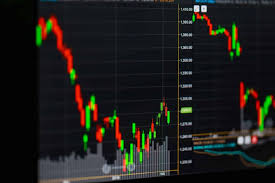08 Nov Forex Trading Basics A Beginner’s Guide to Success 1656398829

Forex Trading Basics: A Beginner’s Guide to Success
Forex trading, also known as foreign exchange or currency trading, is a decentralized global market where currencies are traded. It is one of the largest financial markets in the world, with a daily trading volume exceeding $6 trillion. Whether you are looking to invest, make a living, or simply engage in a new hobby, understanding the fundamentals of forex trading is crucial for success. For those based in Jordan, exploring forex trading basics beginners guide Forex Brokers in Jordan is a great way to start your trading journey.
Understanding the Forex Market
The forex market is unique because it operates 24 hours a day, five days a week. Unlike the stock market, which has set hours, forex trading takes place around the clock in various financial hubs worldwide, such as New York, London, Tokyo, and Sydney. This means that traders can engage in forex trading at almost any time, allowing for greater flexibility in trading strategies.
Currency Pairs
In forex trading, currencies are traded in pairs, such as EUR/USD or GBP/JPY. The first currency in the pair is known as the base currency, while the second is the quote currency. The exchange rate indicates how much of the quote currency is needed to purchase one unit of the base currency. Understanding currency pairs and their relationships is fundamental for successful trading.
Types of Analysis
There are three primary types of analysis that traders use to inform their trading decisions: fundamental analysis, technical analysis, and sentiment analysis.
- Fundamental Analysis: This involves evaluating economic indicators, news events, and other factors that can influence currency values. Traders often track reports on GDP, employment rates, and interest rates, among others.
- Technical Analysis: This method relies on charts and historical price trends to make predictions about future movements. Traders use various tools and indicators, such as moving averages, RSI (Relative Strength Index), and MACD (Moving Average Convergence Divergence).
- Sentiment Analysis: This approach focuses on the overall market sentiment or mood regarding a particular currency or the market as a whole. Understanding how other traders feel about the market can provide insights into potential movements.
Choosing a Forex Broker

Selecting the right forex broker is essential for successful trading. Here are some key factors to consider:
- Regulation: Ensure that the broker is regulated by a credible authority such as the Financial Conduct Authority (FCA) or the U.S. Commodity Futures Trading Commission (CFTC).
- Trading Platform: The trading platform should be user-friendly, reliable, and equipped with the necessary tools and resources for effective trading.
- Spreads and Commissions: Compare the spreads and commission structures of different brokers to understand the costs associated with trading.
- Customer Support: Good customer support is vital, especially for beginners who may have questions or require assistance.
Developing a Trading Strategy
Having a clear trading strategy is crucial for success in the forex market. Here are some essential components to consider when developing your strategy:
- Define Your Goals: Establish what you aim to achieve with forex trading, whether it’s short-term profits or long-term investment.
- Risk Management: Determine how much you are willing to risk on each trade and set stop-loss orders to protect your investment.
- Trading Style: Identify whether you prefer day trading, swing trading, or position trading based on your availability and risk tolerance.
- Stay Informed: Continuously educate yourself about the forex market and stay updated on news events that may impact currency prices.
Practice with a Demo Account
Before risking real money, it is advisable for beginners to practice trading with a demo account. Most brokers offer this feature, allowing you to trade with virtual money in a simulated market environment. This helps build confidence in your strategy and allows you to familiarize yourself with the trading platform without financial risk.
Emotional Discipline and Patience
Forex trading can be emotionally taxing, especially when dealing with losses. It is crucial to maintain emotional discipline and avoid making impulsive decisions based on fear or greed. Developing patience and sticking to your trading plan will enhance your chances of success.
Conclusion
Forex trading can be a rewarding venture for those willing to invest the time in learning the basics. By understanding the forex market, choosing the right broker, and developing a solid trading strategy, beginners can set themselves up for success. Remember to practice regularly, manage your risks prudently, and maintain emotional discipline as you embark on your trading journey.



